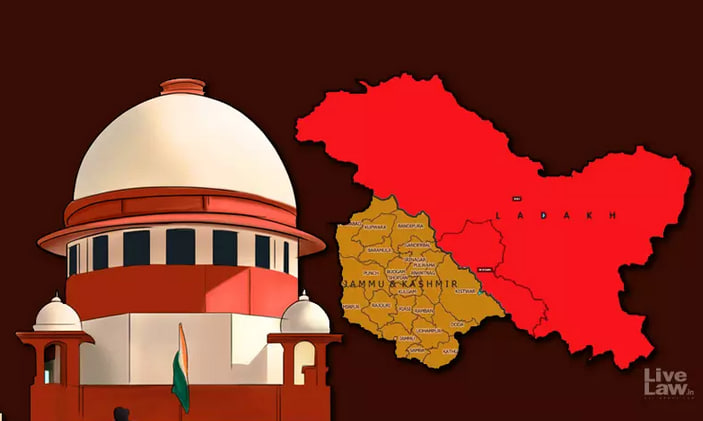Beyond limits: On the Supreme Court order upholding J&K Delimitation Commission
The real issues in J&K are statehood and special status, more than delimitation
The gulf between legality and political legitimacy can be quite substantial . The Supreme Court verdict upholding the constitution of a Delimitation Commission for Jammu and Kashmir and the subsequent delimitation exercise is indeed in-line-with the law, especially the constitutional provisions that empower Parliament to form new States, alter existing ones, and change their status and boundaries, as well as the Jammu and Kashmir Reorganisation Act, 2019. However, it will be wrong to see it as granting judicial imprimatur to the political import of the redrawing of constituencies in the Union Territory. Most political parties in J&K, which was downgraded to Union Territory status in August 2019, have opposed the Commission’s report that added six seats in Jammu division and one in Kashmir division to take the total number of seats to 90. The parties see in the exercise an attempt to weaken the Muslim majority region’s political and electoral significance and boost the prospects of parties with a base in Jammu. They consider this as an extension of the project to strip J&K of its status and privileges and repurpose its politics to the advantage of the ruling party. This question of legitimacy can be answered by the outcome of an election, if and when one is held, to the territorial legislature. However, the readjustment of boundaries may by itself cast-a-shadow on that process too.
The petition that challenged the formation of the Delimitation Commission was a belated one, as it was filed after the panel published its draft order. The Court brushed aside its key contention that the delimitation has been frozen throughout the country until after the first Census held after 2026, noting that Article 170, which deals-with this, applies only to States, and not Union Territories. It has also noted that J&K will be governed by its own reorganisation law, which allows the 2011 Census to be the basis for its delimitation, unlike the rest of the country, where the 2001 census was the basis for the last redrawing of constituency boundaries. It also rejected arguments rooted in the idea that some provisions of the Reorganisation Act were not consistent with the Constitution, noting that these provisions had not been specifically challenged. While the Court may be right in upholding the formation of the delimitation panel, the extensions given to it, and its decision based on laws currently assumed to be valid , the impression is inescapable that the people of J&K are being presented with a fait accompli on matters concerning their political destiny , as long as the core question — the validity of the withdrawal of its statehood and special status in 2019 — remains undecided.
